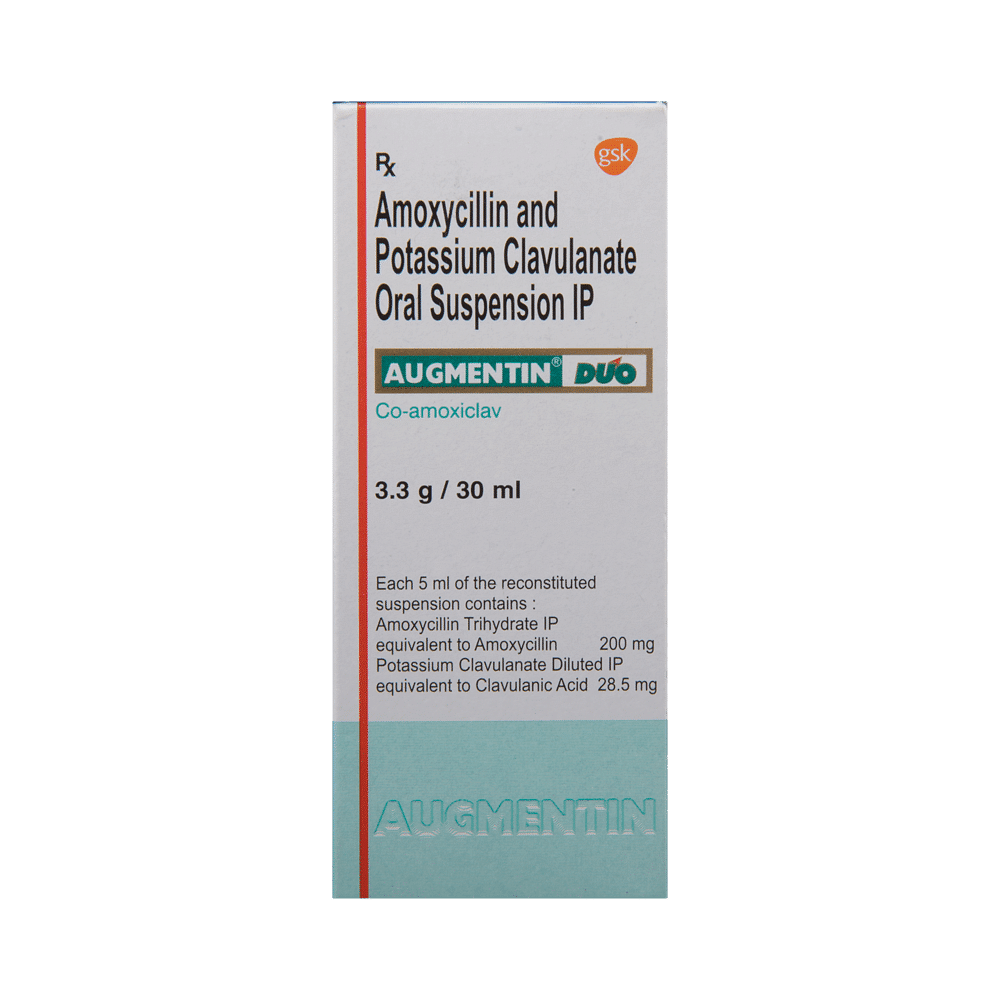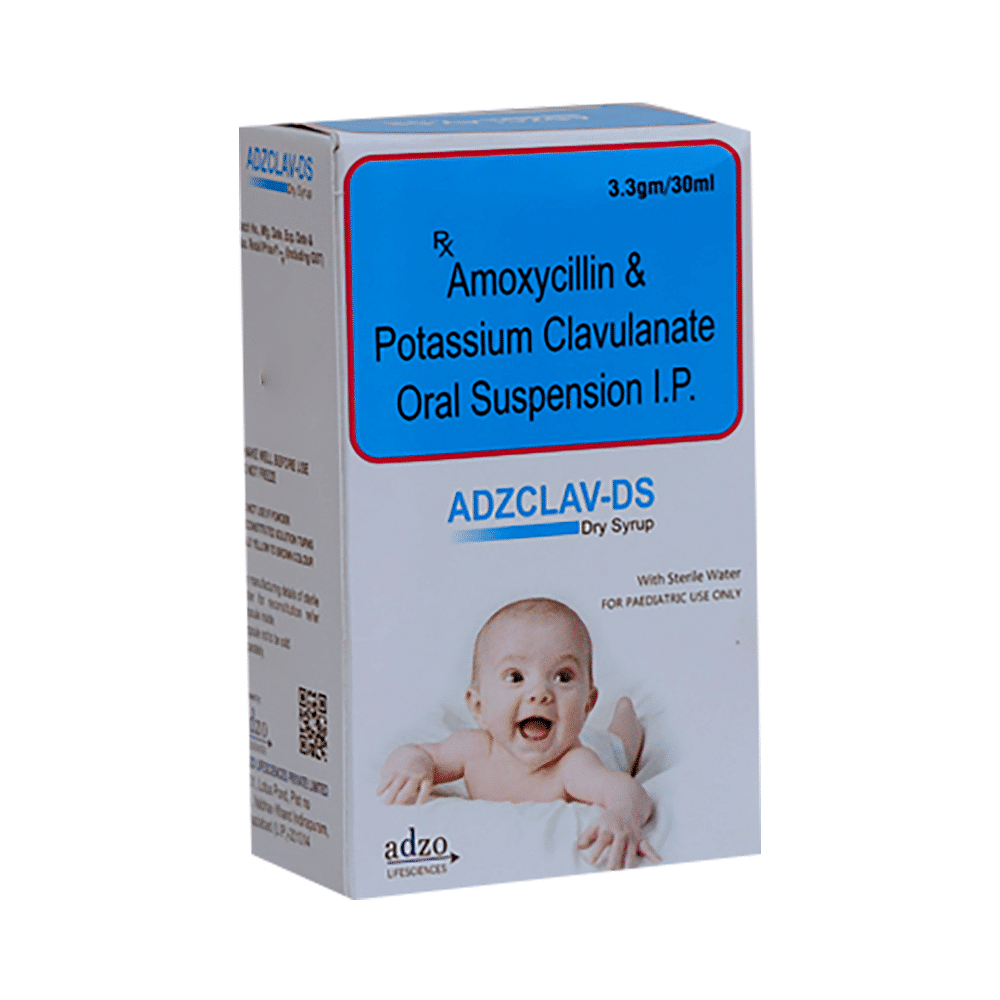
Rikcillin-CV Dry Syrup
Manufacturer
Moderik Healthcare
Salt Composition
Amoxycillin (200mg) + Clavulanic Acid (28.5mg)
Key Information
Short Description
Rikcillin-CV Dry Syrup is an antibiotic medicine that helps treat bacterial infections of the ear, nose, throat, chest, lungs, teeth, skin, and urinary tract.
Dosage Form
Oral Suspension
Introduction
Rikcillin-CV Dry Syrup is an antibiotic medicine that helps treat bacterial infections of the ear, nose, throat, chest, lungs, teeth, skin, and urinary tract. It is capable of killing bacteria that have become resistant to other therapies and thus also helps treat tuberculosis that is resistant to other treatments.
Directions for Use
Never give Rikcillin-CV Dry Syrup until and unless prescribed by the doctor. You must also never share your child’s medicine with anyone else even if they show similar symptoms.
Safety Information
Side Effects
No common side effects listed.
How it works
Rikcillin-CV Dry Syrup is an antibiotic. It has two active agents amoxycillin and clavulanic acid. Amoxycillin works by preventing the formation of the bacterial protective covering (cell wall) essential for the survival of the bacteria. Whereas clavulanic acid serves a special purpose of inhibiting an enzyme (beta-lactamase) that is produced by resistant bacteria. This makes the combination of amoxycillin and clavulanic acid an effective line of treatment for many types of infections.
Quick Tips
Your child must complete the entire course of antibiotics. Stopping too soon may cause the bacteria to multiply again become resistant or cause another infection. Your child may have a bitter taste in the mouth after the intake of Rikcillin-CV Dry Syrup. Eating citrus fruit or sipping plenty of water or fruit juice may help. Encourage your child to drink plenty of water in case diarrhea develops as a side effect.
Related Medicines

Augmentin Duo Suspension

Bactoclav Dry Syrup

Moxtrio CV Oral Suspension

Eeclav Dry Syrup

Glyph-CV Dry Syrup

Amoxykon-Clav Dry Syrup

Aequimentin Oral Suspension

Adzclav-DS Dry Syrup

Moxril-CV 228.5mg Dry Syrup

Ziclave Oral Suspension
Frequently asked questions
Can other medicines be given with Rikcillin-CV Dry Syrup?
Tell your doctor about any other medicines your child is taking before starting Rikcillin-CV Dry Syrup. Check with their doctor before giving any medicine to your child, as it may interact with the syrup.
Can I get my child vaccinated while on treatment with Rikcillin-CV Dry Syrup?
Antibiotics usually do not interfere with vaccine ingredients or cause bad reactions. However, children taking antibiotics should not get vaccinated until they recover from the illness.
Which lab tests may my child undergo while taking Rikcillin-CV Dry Syrup on a long-term basis?
The doctor may monitor kidney and liver function tests periodically to keep track of your child's condition with prolonged therapy.
Can I give a higher than recommended dose of Rikcillin-CV Dry Syrup to my child?
No, giving a higher dose can increase the risk of side effects. If symptoms worsen, consult your doctor for re-evaluation.
Can I stop giving Rikcillin-CV Dry Syrup to my child when symptoms are relieved?
Do not stop giving this medicine unless the full course of treatment is complete, even if you feel better. Continue giving the medicine for the due course as it may still be showing beneficial effects.
Can Rikcillin-CV Dry Syrup cause diarrhea?
Yes, it can cause diarrhea by killing harmful bacteria and affecting helpful bacteria in your child's stomach. If diarrhea persists, encourage your child to drink plenty of water or other fluids and consult a doctor.
Do all viral common colds result in secondary bacterial infection?
Most of the time, bacterial infections do not follow viral infections. Use antibiotics only after consulting with your child's doctor.
Is yellow-green mucus a sign of a bacterial infection?
No, it is normal for mucus to thicken up and change from clear to yellow or green during a common cold. Symptoms often last for 7-10 days.
Is there any sign that shows my child needs immediate medical attention?
Call your child's doctor right away if they experience serious allergic reactions, gastrointestinal infections, and liver damage symptoms such as breathing problems, skin rashes, diarrhea, weakness, paleness, and vomiting.


